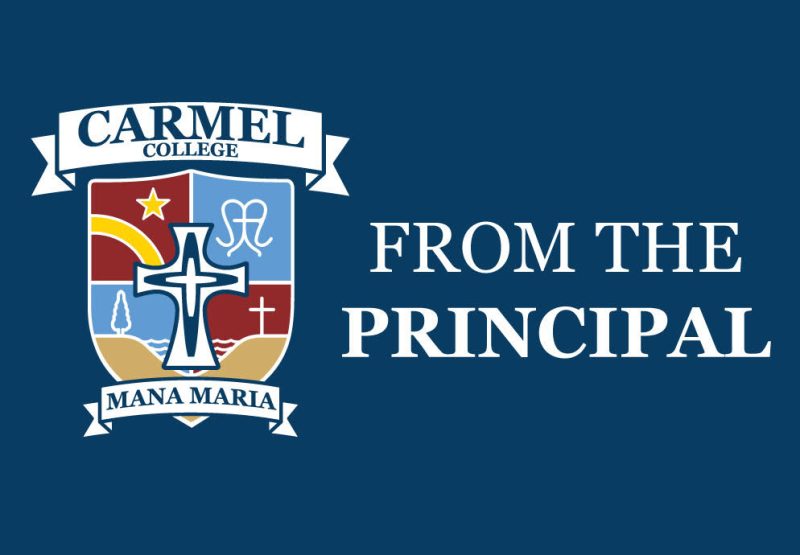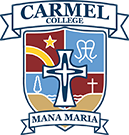Over the past two weeks there have been many events happening in and around the college. Firstly, I would like to mention the PTFA Parent and Daughter breakfast, and the workshop that followed. This was a fantastic event that was not only well supported, but also so timely as the guest speaker, Vinka Wong, discussed the challenges that our young women navigate through adolescence. There were many reminders about the importance of being kind to ourselves and looking after our bodies through nutrition, positive daily interactions, limiting screen time and physical activity. A huge thank you to the PTFA for the planning and organisation of this event, and to the sponsors for their donations and student helpers on the day.
Parent Teacher interviews took place last week and we adopted a different approach in closing earlier and having all of the interviews in one evening. There were a large number of interviews and I hope that those who attended enjoyed the afternoon/evening. As this was our first time running interviews this way, if there is any feedback that you would like to share, please do not hesitate to contact me directly.
Last week also saw our first Book Week event. This initiative was driven by our Heads of Academic, Melinda Chen and Maia O’Callaghan. The week included many activities from guest authors to quizzes, culminating on Friday with a very successful and well received book parade that saw staff and students participating by dressing up and enjoying lunch time stalls. A huge thank you to all who supported the week. Mrs Liz van Geffen was on staff reflection last week and, it is with her permission, that I share her reflection at the end of the newsletter which connects Mercy to Book Week.
I would also like to thank Melinda and Maia for another initiative they have undertaken this year; the Subject and Skills Workshops. Each week on Thursday, from 3.30-4.30pm in the library, they coordinate and facilitate workshops that focus on different subjects, with specialised student tutors assisting students with their current in-class work or providing extension activities. The newsletter has a link to the schedule, which I encourage all to look at and consider, as over the past few weeks it has been inspiring to see this initiative begin with a fantastic number of students working together to support each other in their learning.
As we enter Week 9 of the term, we have a significant event on our calendar, Carmel Day. Carmel Day recognises and celebrates the Church feast of Our Lady of Mt Carmel which falls on 16 July, during the school holidays. This day is central to what it means to belong to our community. Our college is named for Mary, our Lady of Carmel, and our devotion to Mary is seen in our school Motto ‘Mana Maria’. Our motto encourages each of us to embody the virtues of Mary, a woman of faith, courage and compassion.
Carmel Day begins with Mass, which all are invited to attend, and concludes with a school concert which all, including staff, will participate in. Unfortunately, the concert is only for students and staff to attend. At assembly this week I reminded students that Carmel Day is a school day and, therefore, attendance is compulsory. However, more importantly, it is a day in which our young women have the opportunity to develop their sense of belonging by celebrating their devotion to Mary, our college and each other.
Please, enjoy Liz’s reflection for Book Week, and Liz, thank you for allowing me to share this.
To mark the beginning of Book Week, I just want to share one of the reasons that I think books are important. I’ve enlisted the help of two authors to help me articulate my point: the first is John Green, who was my favourite author when I was in high school. He says:
“Let me tell you what is, in my opinion, the central problem of human existence: I am stuck in my body, in my consciousness, seeing out of my eyes. I am the only me I ever get to be, and so I am the only person I can imagine endlessly complexly. That’s not the problem, actually. The problem is you. You are so busy taking in your own wondrousness that you can’t be bothered to acknowledge mine.”
“But let me say this: I think this is why we read. I mean, finally, what does reading do that movies and video games and television do not? I would argue that books, more than other media, allow us to live inside the lives of others because we have to translate scratches on a page into ideas and make the story ours. We become co-creators of the story, and they allow us to inhabit someone else’s body for a while. Books give us the faith that others are real, that their joy and pain should matter to us, and that ours can matter to them. In some ways, this confirms our own existence, because most of our mattering is in the context of one another.”
My second author, Ann Patchett, complemented this thought when she said:
“Reading fiction is important. It is a vital means of imagining life other than our own, which in turn makes us more empathetic beings. Following complex storylines stretches our brains beyond the 140 characters of sound-bite thinking, and staying within the world of a novel gives us the ability to be quiet and alone; [empathy and the ability to be quiet and alone] are two skills that are disappearing faster than the polar ice caps.”
In essence, books and reading are important for young people – well, all people, really – because they help to build the kind of Mercy Women, the kind of human beings, that I think all of us here at Carmel College are looking to nurture.

